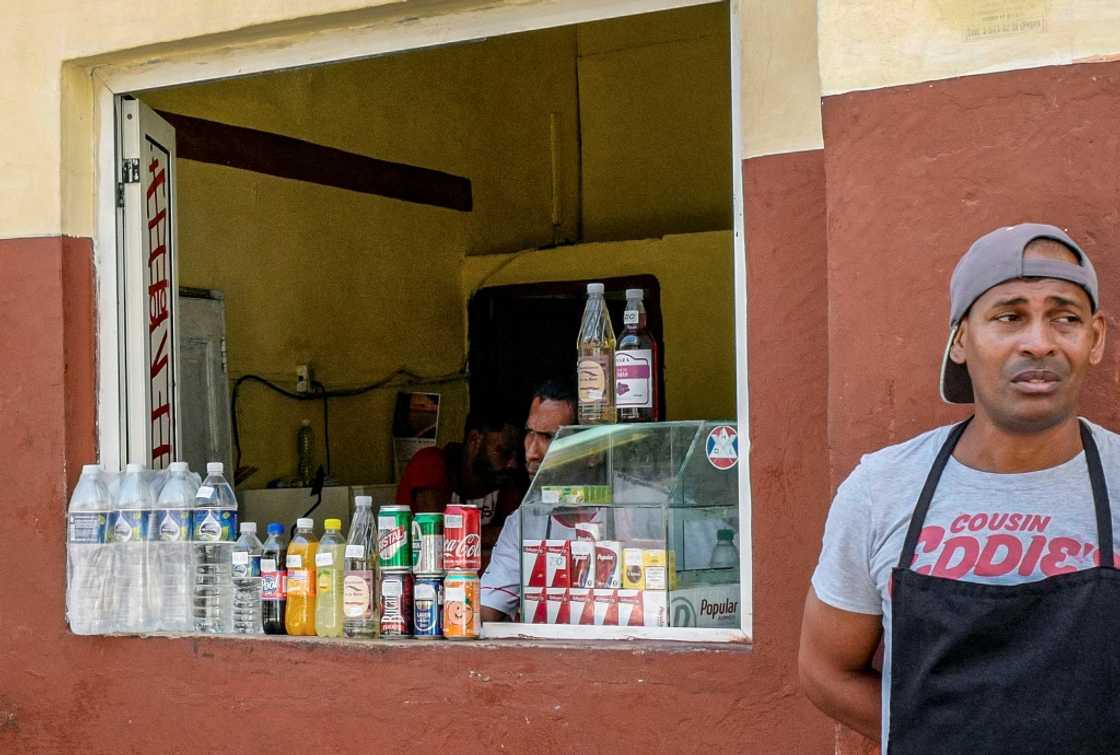Soaring inflation wallops Cubans already battling shortages

Source: AFP
PAY ATTENTION: Enjoy reading our stories? Join YEN.com.gh's Telegram channel for more!
Cuban retiree Xiomara Castellanos gets a monthly pension equivalent to $13.80. A carton of 30 eggs in the inflation-battered country costs $14.10 -- almost four times more than two years ago.
"It is hitting us hard, very hard," the 80-year-old told AFP of inflation that officially reached 39 percent last year, but is likely much, much higher.
In 2021, the one-party communist government moved to end parallel currencies in Cuba, phasing out a convertible peso that was pegged to the dollar, leaving only the regular, weaker peso, or CUP.

Source: AFP
Since then, the currency has fallen from 24 to an official rate of 120 to the dollar. On the black market the rate is 180.
PAY ATTENTION: Click “See First” under the “Following” tab to see YEN.com.gh News on your News Feed!
To compensate for the currency devaluation, the government two years ago raised all salaries and pensions by 450 percent.
But then, "prices... exploded and salaries did not follow," Castellanos told AFP.
Reality is worse
According to official figures, inflation -- which has several countries in Latin America and elsewhere in its grips -- reached 70 percent in import-dependent Cuba in 2021 and 39 percent in 2022.

Source: AFP
But Pavel Vidal, a Cuban economist with the Javeriana University of Cali in Colombia, said real inflation was five to six times higher.
"Real inflation in 2022 exceeded 200 percent, one of the highest in the world," Vidal said, citing his own calculations.
Before 2021, said Vidal, there was no such thing as a consumer price index in Cuba, making comparisons difficult.
But from GDP figures one could infer inflation was the highest in Cuban history, he said.
Like many Cubans, Castellanos depends heavily on the "libreta" -- a ration book with which one can buy basics like rice, beans and bread at subsidized price.
You buy what you get; the choice is severely limited.

Source: AFP
For the equivalent of $1.42 in CUP, Castellanos can get 3.1 kilograms (seven pounds) of rice, a half-liter of oil, seven eggs, 1.3 kg of black beans, 2.7 kg of chicken and a packet of coffee for the month at a dedicated subsidized store.
If you want anything else, the next point of call is a state-run supermarket, where they charge much higher prices and in dollars much-needed for the public coffers.
The last resort are the many small privately-owned stores that have popped up since the government in 2021 authorized small and medium businesses.
At one of these in Havana, a kilogram of milk powder costs about $14.
Cubans can withdraw dollars from the bank but in limited quantities, meaning that black market dealers can charge a premium.
And while for consumers the exchange rate is 120 to 180, state enterprises which make up 85 percent of the economy get a rate of 24 -- a measure to ease the pain of high import prices.
Cuban economist Omar Everleny Perez has worked out that a couple needs $113 per month to cover basic food requirements on top of what can be obtained with the "libreta."
But the average salary on the island of 11.1 million people is about $33, and a large part of the population relies on remittances sent from family abroad in those most coveted of currencies: the US dollar.
"What concerns me is that the world in which Cubans live is becoming more and more unequal," said Perez, who has observed an increase in poverty.
On Tuesday, President Miguel Diaz-Canel will take part in a virtual meeting with his leftist counterparts from Mexico, Colombia, Brazil and Argentina to discuss ways to deal with inflation.
New feature: Сheck out news that is picked for YOU ➡️ click on “Recommended for you” and enjoy!
Source: AFP




